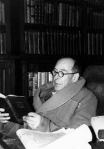 It is an anomaly for Orthodox Church Quotes to post material that is not from an elder, saint, or church father, but C.S. Lewis writes so succinctly about the need to read the original sources in the Preface to On the Incarnation by St. Athanasius the Great. Therefore, it seems fitting to include an excerpt from that writing here as one of the purposes of this site is to create an interest in reading the original writings of the Church Fathers.
It is an anomaly for Orthodox Church Quotes to post material that is not from an elder, saint, or church father, but C.S. Lewis writes so succinctly about the need to read the original sources in the Preface to On the Incarnation by St. Athanasius the Great. Therefore, it seems fitting to include an excerpt from that writing here as one of the purposes of this site is to create an interest in reading the original writings of the Church Fathers.
+++++++
There is a strange idea abroad that in every subject the ancient books should be read only by the professionals, and that the amateur should content himself with the modern books. Thus I have found as a tutor in English Literature that if the average student wants to find out something about Platonism, the very last thing he thinks of doing is to take a translation of Plato off the library shelf and read the Symposium. He would rather read some dreary modern book ten times as long, all about “isms” and influences and only once in twelve pages telling him what Plato actually said. The error is rather an amiable one, for it springs from humility. The student is half afraid to meet one of the great philosophers face to face. He feels himself inadequate and thinks he will not understand him. But if he only knew, the great man, just because of his greatness, is much more intelligible than his modern commentator. The simplest student will be able to understand, if not all, yet a very great deal of what Plato said; but hardly anyone can understand some modern books on Platonism. It has always therefore been one of my main endeavours as a teacher to persuade the young that firsthand knowledge is not only more worth acquiring than secondhand knowledge, but is usually much easier and more delightful to acquire.
This mistaken preference for the modern books and this shyness of the old ones is nowhere more rampant than in theology. Wherever you find a little study circle of Christian laity you can be almost certain that they are studying not St. Luke or St. Paul or St. Augustine or Thomas Aquinas or Hooker or Butler, but M. Berdyaev or M. Maritain or M. Niebuhr or Miss Sayers or even myself.
Now this seems to me topsy-turvy. Naturally, since I myself am a writer, I do not wish the ordinary reader to read no modern books. But if he must read only the new or only the old, I would advise him to read the old. And I would give him this advice precisely because he is an amateur and therefore much less protected than the expert against the dangers of an exclusive contemporary diet. A new book is still on its trial and the amateur is not in a position to judge it. It has to be tested against the great body of Christian thought down the ages, and all its hidden implications (often unsuspected by the author himself) have to be brought to light.
— C.S. Lewis, Excerpt from the Preface to On the Incarnation by St. Athanasius the Great (Popular Patristics Series Edition)
See our list of Church Father writings available on Kindle (many are only 99 cents!). If you don’t have a Kindle, try the for your phone, computer, or tablet.
 As thou takest thy seat at table, pray. As thou liftest the loaf, offer thanks to the Giver. When thou sustainest thy bodily weakness with wine, remember Him Who supplies thee with this gift, to make thy heart glad and to comfort thy infirmity. Has thy need for taking food passed away? Let not the thought of thy Benefactor pass away too. As thou art putting on thy tunic, thank the Giver of it. As thou wrappest thy cloak about thee, feel yet greater love to God, Who alike in summer and in winter has given us coverings convenient for us, at once to preserve our life, and to cover what is unseemly. Is the day done? Give thanks to Him Who has given us the sun for our daily work, and has provided for us a fire to light up the night, and to serve the rest of the needs of life. Let night give the other occasion of prayer. When thou lookest up to heaven and gazest at the beauty of the stars, pray to the Lord of the visible world; pray to God the Arch-artificer of the universe, Who in wisdom hath made them all. When thou seest all nature sunk in sleep, then again worship Him Who gives us even against our wills release from the continuous strain of toil, and by a short refreshment restores us once again to the vigour of our strength. Let not night herself be all, as it were, the special and peculiar property of sleep. Let not half thy life be useless through the senselessness of slumber. Divide the time of night between sleep and prayer. Nay, let thy slumbers be themselves experiences in piety; for it is only natural that our sleeping dreams should be for the most part echoes of the anxieties of the day. As have been our conduct and pursuits, so will inevitably be our dreams. Thus wilt thought pray without ceasing; if thought prayest not only in words, but unitest thyself to God through all the course of life and so thy life be made one ceaseless and uninterrupted prayer.”
As thou takest thy seat at table, pray. As thou liftest the loaf, offer thanks to the Giver. When thou sustainest thy bodily weakness with wine, remember Him Who supplies thee with this gift, to make thy heart glad and to comfort thy infirmity. Has thy need for taking food passed away? Let not the thought of thy Benefactor pass away too. As thou art putting on thy tunic, thank the Giver of it. As thou wrappest thy cloak about thee, feel yet greater love to God, Who alike in summer and in winter has given us coverings convenient for us, at once to preserve our life, and to cover what is unseemly. Is the day done? Give thanks to Him Who has given us the sun for our daily work, and has provided for us a fire to light up the night, and to serve the rest of the needs of life. Let night give the other occasion of prayer. When thou lookest up to heaven and gazest at the beauty of the stars, pray to the Lord of the visible world; pray to God the Arch-artificer of the universe, Who in wisdom hath made them all. When thou seest all nature sunk in sleep, then again worship Him Who gives us even against our wills release from the continuous strain of toil, and by a short refreshment restores us once again to the vigour of our strength. Let not night herself be all, as it were, the special and peculiar property of sleep. Let not half thy life be useless through the senselessness of slumber. Divide the time of night between sleep and prayer. Nay, let thy slumbers be themselves experiences in piety; for it is only natural that our sleeping dreams should be for the most part echoes of the anxieties of the day. As have been our conduct and pursuits, so will inevitably be our dreams. Thus wilt thought pray without ceasing; if thought prayest not only in words, but unitest thyself to God through all the course of life and so thy life be made one ceaseless and uninterrupted prayer.”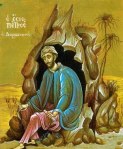 Briefly, we may say that in the nature of things, if someone wants to be saved, no person and no time, place or occupation can prevent him. He must not, however, act contrary to the objective that he has in view, but must with discrimination refer every thought to the divine purpose. Things do not happen out of necessity: they depend upon the person through whom they happen. We do not sin against our will, but we first assent to an evil thought and so fall into captivity. Then the thought itself carries the captive forcibly and against his wishes into sin.
Briefly, we may say that in the nature of things, if someone wants to be saved, no person and no time, place or occupation can prevent him. He must not, however, act contrary to the objective that he has in view, but must with discrimination refer every thought to the divine purpose. Things do not happen out of necessity: they depend upon the person through whom they happen. We do not sin against our will, but we first assent to an evil thought and so fall into captivity. Then the thought itself carries the captive forcibly and against his wishes into sin.
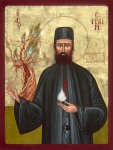
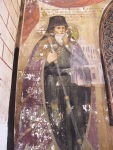
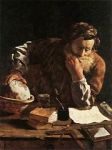
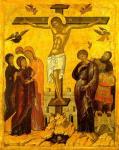




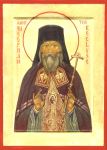

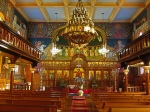
















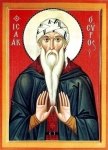
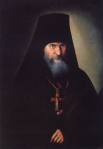
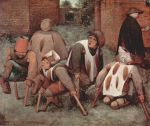


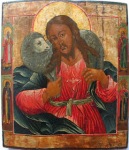
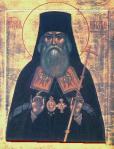

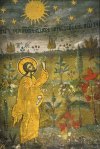
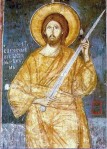



You must be logged in to post a comment.